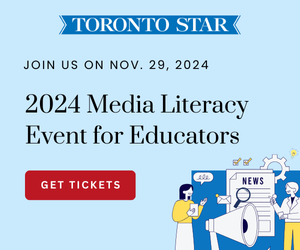
India made history this month when it announced that there were no more cases of polio in the country.
The victory came after years of work by India’s public-health workers. They travelled to the most remote places and the poorest areas in the country. They gave vaccines—medicine that prevents diseases—to 172 million children.
Polio is a viral infection that can paralyze (stop movement in) the body, especially in people’s arms and legs. It can also make people’s breathing difficult is if they have very bad asthma. It can even be fatal.
Polio is very contagious, so when people with polio are living close together, like they do in India, it spreads easily from one person to another.
In the 1950s thousands of Canadians and Americans got polio.
Parents panicked, worried their children would catch the disease. In 1955 an American, Dr. Jonas Salk, created a vaccine to prevent polio. It has now been wiped out in the U.S. and Canada.

But polio went untreated in many poorer countries that could not afford to vaccinate people.
Many companies have contributed money and resources to vaccinate children around the world. WHO (the World Health Organization), UNICEF, The Bill and Melinda Gates Foundation and International Rotary (a business club) helped pay for the vaccines and the people to give them out.
It cost millions of dollars, but for countries like India it has paid off.
CURRICULUM CONNECTIONS
By Jonathan Tilly
Writing/Discussion Prompt
Many organizations and foundations worked together to help make India free from polio. How does co-operation lead to success? Why might co-operation be one of the most important skills in our world of technology and the internet?
Reading Prompt: Metacognition
Being familiar with topics and ideas before reading helps readers understand texts. What previous knowledge did you have that helped you comprehend today’s article?
Primary
Identify, initially with some support and direction, what strategies they found
most helpful before, during, and after reading and how they can use these and
other strategies to improve as readers (OME, Reading: 4.1).
Junior & Intermediate
Identify the strategies they found most helpful before, during, and after reading and explain, in conversation with the teacher and/or peers or in a reader’s notebook, how they can use these and other strategies to improve as readers (OME, Reading: 4.1).
Grammar Feature: Britain vs. America
Some countries have different rules about spelling. Did you know that because our country began as part of the British Empire, we often spell English words differently than our American neighbours? For example, in British English, “travelled” is spelled with two l’s before the suffix -ed. In America, the same word is spelled “traveled,” with a single l.
Other words that are spelled differently include:
British English American English
colour color
doughnut donut
favour favor
pyjamas pajamas
recognise recognize
Do you think it’s important to use the correct spelling for the country you live in? Why or why not?







